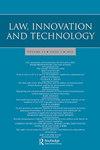(二)数据市场:监管挑战探索
Q1 Social Sciences
引用次数: 4
摘要
管理数据市场将是21世纪的主要挑战之一。然而,为了考虑规范这个市场,我们首先需要使其维度和动态更易于观察和分析。在本文中,我们探讨了市场的社会学和法律研究现状可以告诉我们关于数据市场的什么:它是什么样的市场,构成它的行动者的实践和配置,以及在那里交易的是什么样的数据。我们从这个市场的主观不透明开始,到对监管和治理感兴趣的研究人员,回顾其范围,多样性和可监管性的冲突立场,然后探索食品和药品监管的比较,以了解试图规范数据如何共享和交易的可能的规范和实际影响以及固有的目标。我们的结论是,对于数据市场监管目标的规范性转变,从优先考虑数据的经济价值,转向一种更细致的方法,旨在使数据的使用与所反映的社区的需求和权利保持一致,这是一个强有力的论据。本文章由计算机程序翻译,如有差异,请以英文原文为准。
(Re)making data markets: an exploration of the regulatory challenges
ABSTRACT Regulating the data market will be one of the major challenges of the twenty-first century. In order to think about regulating this market, however, we first need to make its dimensions and dynamics more accessible to observation and analysis. In this paper we explore what the state of the sociological and legal research on markets can tell us about the market for data: what kind of market it is, the practices and configurations of actors that constitute it, and what kinds of data are traded there. We start from the subjective opacity of this market to researchers interested in regulation and governance, review conflicting positions on its extent, diversity and regulability, and then explore comparisons from food and medicine regulation to understand the possible normative and practical implications and aims inherent in attempting to regulate how data is shared and traded. We conclude that there is a strong argument for a normative shift in the aims of regulation with regard to the data market, away from a prioritisation of the economic value of data and toward a more nuanced approach that aims to align the uses of data with the needs and rights of the communities reflected in it.
求助全文
通过发布文献求助,成功后即可免费获取论文全文。
去求助
来源期刊

Law, Innovation and Technology
Social Sciences-Law
CiteScore
4.50
自引率
0.00%
发文量
18
期刊介绍:
Stem cell research, cloning, GMOs ... How do regulations affect such emerging technologies? What impact do new technologies have on law? And can we rely on technology itself as a regulatory tool? The meeting of law and technology is rapidly becoming an increasingly significant (and controversial) topic. Law, Innovation and Technology is, however, the only journal to engage fully with it, setting an innovative and distinctive agenda for lawyers, ethicists and policy makers. Spanning ICTs, biotechnologies, nanotechnologies, neurotechnologies, robotics and AI, it offers a unique forum for the highest level of reflection on this essential area.
 求助内容:
求助内容: 应助结果提醒方式:
应助结果提醒方式:


